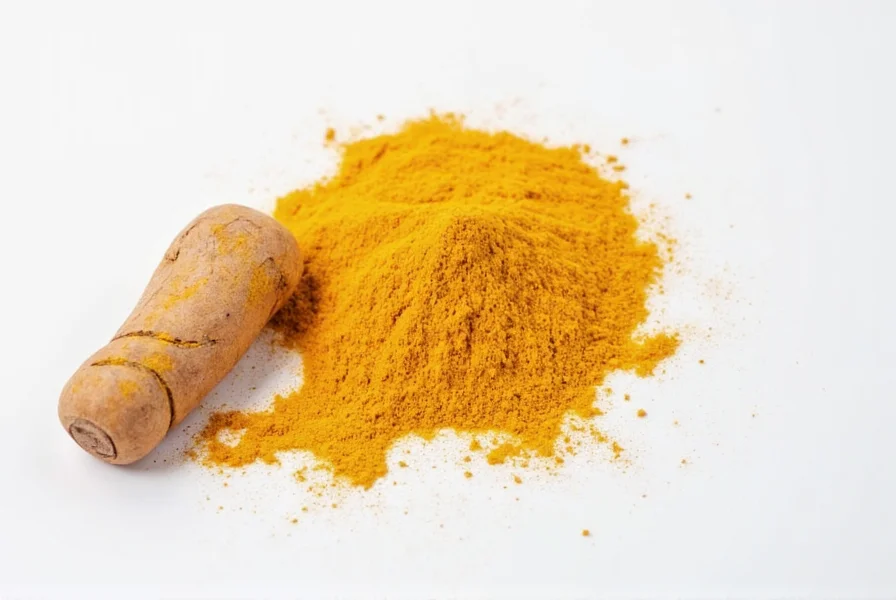Yes, turmeric can cause loose stools in some individuals, particularly when consumed in high doses (typically above 1,500-2,000 mg of curcumin daily) or by people with sensitive digestive systems. This side effect occurs because curcumin, turmeric's active compound, stimulates bile production and may accelerate intestinal motility.
While turmeric is widely celebrated for its anti-inflammatory properties, understanding its potential gastrointestinal effects is crucial for safe consumption. Many people incorporate turmeric into their wellness routines through golden milk, supplements, or cooking, but don't realize that this popular spice can sometimes disrupt digestive harmony.
Research shows that approximately 5-10% of people experience mild digestive side effects when taking turmeric supplements. These effects are usually dose-dependent and tend to resolve when consumption is reduced or taken with food. The relationship between turmeric and digestive health isn't straightforward—while it can cause loose stools in some, it may actually help regulate digestion in others.
The Science Behind Turmeric and Digestive Effects
Turmeric contains curcumin, which influences multiple digestive processes. Curcumin stimulates the gallbladder to produce more bile, which helps break down fats but can sometimes lead to faster intestinal transit. This accelerated movement through the digestive tract may result in loose stools for sensitive individuals.
A comprehensive review published in Food and Chemical Toxicology examined 120 clinical trials involving curcumin supplementation. The analysis revealed that gastrointestinal issues, including diarrhea, were the most commonly reported side effects, occurring in about 8% of participants taking doses above 1,000 mg daily. Most cases were mild and resolved without intervention.
| Dosage Level | Reported Incidence of Loose Stools | Typical Resolution Time |
|---|---|---|
| Under 500 mg daily | 1-2% | N/A (rarely occurs) |
| 500-1,000 mg daily | 3-5% | 1-2 days after reducing dose |
| 1,000-2,000 mg daily | 6-9% | 2-3 days after adjustment |
| Over 2,000 mg daily | 10-15% | 3-5 days after dose reduction |
Who's Most Likely to Experience Turmeric-Related Digestive Issues?
Certain factors increase the likelihood of experiencing loose stools from turmeric consumption:
- High-dose supplementation - Doses exceeding 1,500 mg of curcumin daily significantly increase risk
- Pre-existing digestive conditions - People with IBS, Crohn's disease, or ulcerative colitis may be more sensitive
- Empty stomach consumption - Taking turmeric without food increases gastrointestinal exposure
- Combination with other supplements - Pairing with black pepper (piperine) enhances absorption but may intensify effects
- Individual sensitivity - Genetic factors affecting how your body processes curcumin

Managing Turmeric-Related Digestive Side Effects
If you experience loose stools after consuming turmeric, consider these evidence-based strategies:
- Reduce your dosage - Start with 250-500 mg of curcumin daily and gradually increase as tolerated
- Take with food - Consuming turmeric with a meal containing healthy fats slows absorption and reduces GI impact
- Choose quality formulations - Some curcumin products include digestive enzymes to minimize side effects
- Monitor timing - Taking turmeric earlier in the day may prevent nighttime digestive disruptions
- Stay hydrated - Increased fluid intake helps maintain electrolyte balance if experiencing mild diarrhea
Most digestive side effects from turmeric resolve within 24-72 hours after adjusting your consumption. If symptoms persist beyond three days or become severe, discontinue use and consult a healthcare provider.
When to Seek Medical Advice
While turmeric-induced loose stools are typically mild and temporary, certain symptoms warrant medical attention:
- Diarrhea lasting more than 3 days despite reducing turmeric intake
- Blood in stool or black, tarry stools
- Severe abdominal pain or cramping
- Signs of dehydration (dizziness, reduced urination, extreme thirst)
- Fever accompanying digestive symptoms
Individuals with gallbladder issues should exercise particular caution, as turmeric's bile-stimulating effects could potentially trigger complications. Always discuss turmeric supplementation with your doctor if you have underlying health conditions or take medications.

Benefits vs. Risks: Finding Your Balance
The potential for turmeric to cause loose stools shouldn't overshadow its well-documented health benefits. For most people, the anti-inflammatory and antioxidant properties of turmeric far outweigh the risk of mild digestive side effects, especially when consumed responsibly.
Research suggests that regular, moderate turmeric consumption may actually improve digestive health for many individuals by reducing inflammation in the gut. The key is finding your personal tolerance threshold. Many people successfully incorporate turmeric into their diets by starting with culinary amounts (1/2 to 1 teaspoon daily in food) before considering supplementation.
Remember that whole turmeric root or powder in food typically causes fewer side effects than concentrated supplements, as the natural matrix of the spice may moderate how your body processes curcumin.
Frequently Asked Questions
How much turmeric causes digestive issues?
Most digestive issues occur with supplemental doses exceeding 1,500 mg of curcumin daily. Culinary use (1/2 to 1 teaspoon daily in food) rarely causes problems. Individual tolerance varies based on digestive sensitivity and whether turmeric is taken with food.
Does turmeric cause diarrhea in everyone?
No, turmeric doesn't cause diarrhea in everyone. Studies show only 5-10% of people experience digestive side effects, typically at higher supplemental doses. Many people consume turmeric regularly without any digestive issues, especially when used in culinary amounts or taken with food.
How long does turmeric-induced diarrhea last?
Turmeric-related digestive issues usually resolve within 24-72 hours after reducing or stopping consumption. If symptoms persist beyond three days or become severe, discontinue use and consult a healthcare provider, as this may indicate an underlying condition rather than a simple supplement side effect.
Can I prevent turmeric from causing loose stools?
Yes, you can reduce the risk by taking turmeric with food (especially containing healthy fats), starting with lower doses (250-500 mg), choosing quality formulations that include digestive enzymes, and avoiding extremely high doses. Gradually increasing your intake allows your digestive system to adapt.
Is turmeric bad for your stomach long-term?
For most people, turmeric is not harmful to the stomach long-term and may actually support digestive health through its anti-inflammatory properties. However, individuals with certain conditions like GERD or peptic ulcers should consult a doctor before regular use, as high doses might exacerbate symptoms in sensitive individuals.











 浙公网安备
33010002000092号
浙公网安备
33010002000092号 浙B2-20120091-4
浙B2-20120091-4